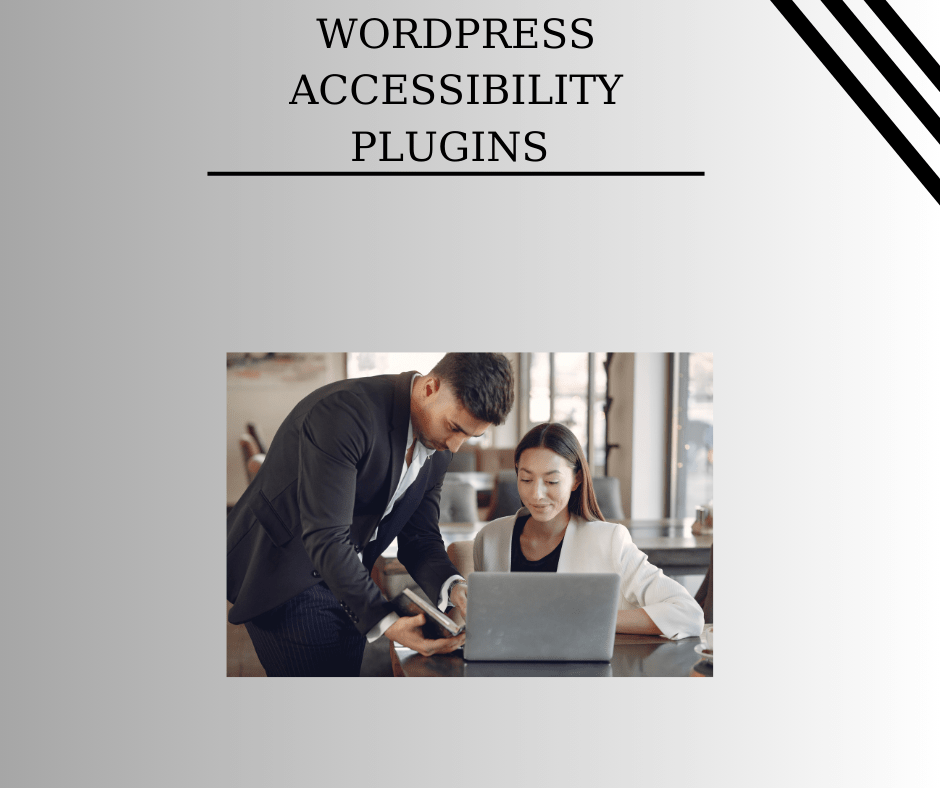
Introduction:
Ensuring that your website is accessible to all users, including those with disabilities, is essential for providing an inclusive digital experience. WordPress accessibility plugins offer a valuable solution to enhance the usability and navigation of your website for individuals with varying needs. In this article, we explore the features, benefits, and best practices of utilizing WordPress accessibility plugins to create a more accessible and welcoming online environment, aligning with inclusive design principles.
Key Features and Functionality:
1. Accessibility Enhancements:
In the ever-evolving digital landscape, ensuring that websites are accessible to all users is paramount. WordPress a widely used content management system, has taken significant strides in fostering inclusivity through a range of accessibility plugins. These plugins offer a diverse set of enhancements that cater to users with varying needs.
Text-to-speech (TTS) functionality is a key feature provided by several WordPress accessibility plugins. Notable among these is the SpeakOut! Email Petitions plugin, which, while primarily designed for creating petitions, incorporates TTS to make content more accessible.
2. Screen Reader Compatibility:
These plugins ensure compatibility with screen reader software, allowing visually impaired users to navigate your site effectively.
3. Color and Contrast Adjustments:
Many plugins offer options to adjust color schemes and contrast, accommodating users with visual impairments.
4. Semantic Markup:
Accessibility plugins help optimize your website’s HTML markup to ensure it’s semantically structured and navigable.
5. Keyboard Navigation:
Advanced plugins enhance keyboard navigation, making it easier for users who rely on keyboards for navigation.
Benefits of Using Accessibility Plugins for Improving Website Accessibility:
1. Inclusive User Experience:
Accessibility plugins create a more inclusive environment, ensuring that all users can access and interact with your content.
2. Compliance with Regulations:
Implementing accessibility enhancements helps you adhere to accessibility standards and regulations, avoiding legal issues.
3. Expanded Audience Reach:
An accessible website broadens your reach to users with disabilities, tapping into a valuable and often underserved audience.
4. Positive Brand Image:
Demonstrating a commitment to accessibility contributes to a positive brand image and user trust.
5. Enhanced SEO:
Many accessibility improvements align with good SEO practices, improving your website’s search engine visibility.
Top WordPress Accessibility Plugins for Improving Website Accessibility:
1. WP Accessibility:
Offers a range of accessibility enhancements, including keyboard navigation, skip-to-content links, and alt text optimization.
2. WP ADA Compliance Check Basic:
Provides an accessibility compliance checker and assists in addressing issues related to ADA guidelines.
3. UserWay Accessibility Widget:
Offers customizable accessibility tools, including text resizing, color adjustments, and screen reader compatibility.
Best Practices for Improving Website Accessibility with WordPress Accessibility Plugins:
1. Conduct an Accessibility Audit:
Perform an accessibility audit to identify areas for improvement and prioritize enhancements.
2. Regular Testing:
Continuously test your website’s accessibility features to ensure they function as intended and remain up to date.
3. User Testing:
Involve users with disabilities in usability testing to gain insights into their experience and gather feedback.
4. Provide Alt Text for Images:
Ensure all images have descriptive alt text to make them understandable for screen readers.
5. Educate Your Team:
Educate your team about accessibility best practices to maintain an accessible approach during content creation and updates.
Conclusion:
WordPress accessibility plugins empower you to create a more inclusive and user-friendly website, ensuring that all visitors can access and engage with your content. By leveraging these plugins and adhering to best practices, you can improve website accessibility, enhance user experiences, and demonstrate a commitment to inclusivity. Utilizing WordPress accessibility plugins is a strategic approach to fostering an environment that values diversity and provides equal access to information and services, aligning with the ethos of creating an inclusive digital world.